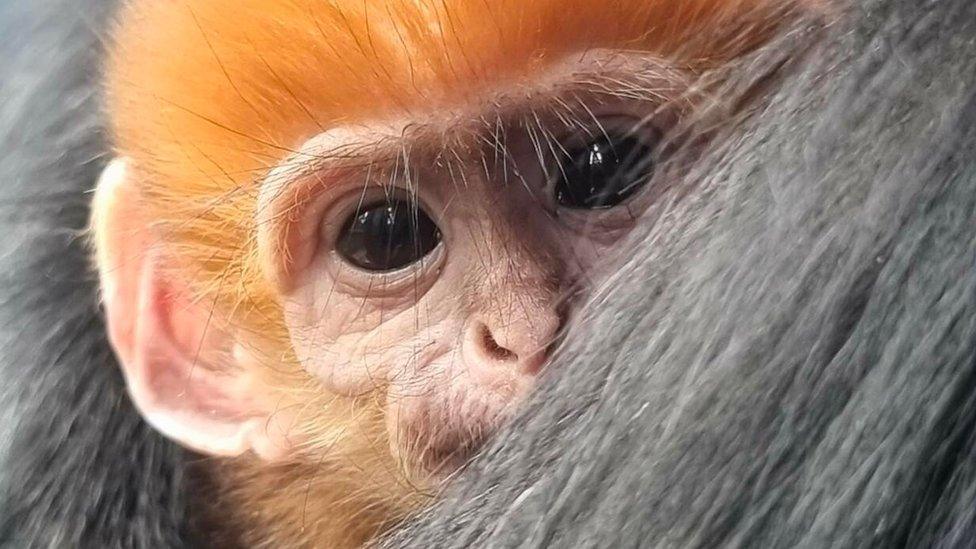Whipsnade Zoo snails move to new Pacific island home
- Published
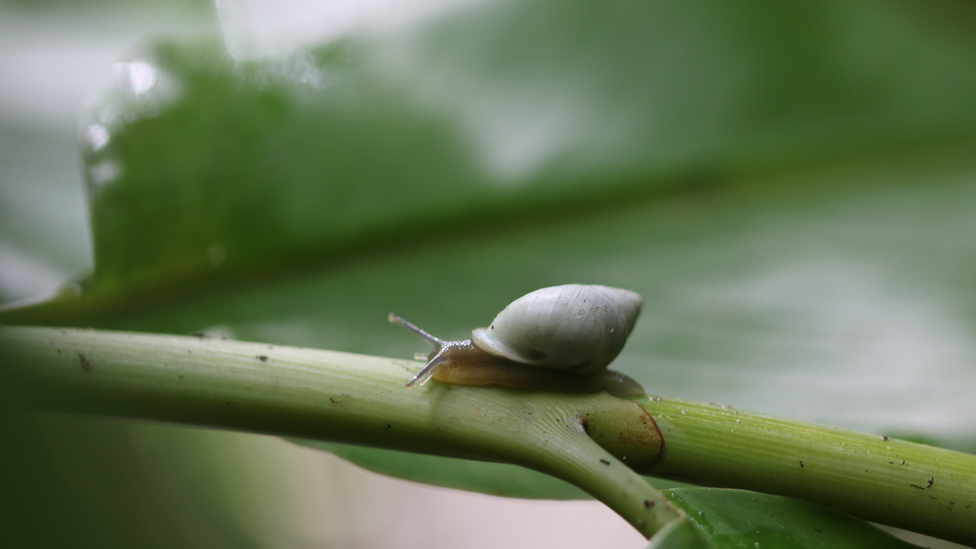
Since 2015, conservationists have reintroduced more than 24,000 Partula snails onto the French Polynesian islands
Thousands of extinct-in-the-wild snails bred in British zoos have been flown to their new French Polynesian home.
Whipsnade Zoo's invertebrate specialist Tyrone Capel has this week released 1,600 of the fingernail-sized snails onto the volcanic island of Moorea.
Partula snails, which grow to about 2cm, travelled on a 22-hour-flight packaged in tissue in cardboard tubes.
Many of the species being reintroduced from the Bedfordshire zoo vanished from the wild over 30 years ago.
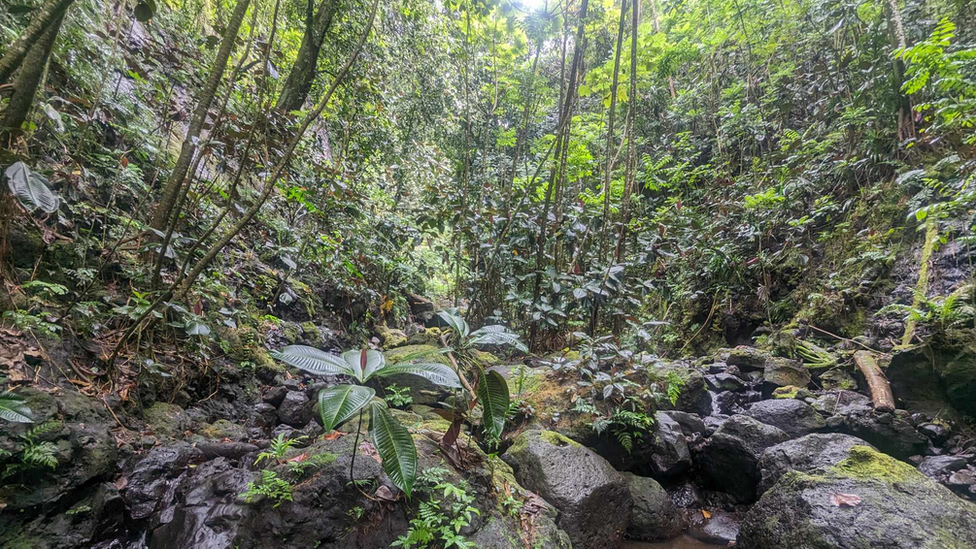
The snails have travelled around 9,500 miles to their new home in Moorea

Generations of Partula snail have been bred in conservation zoos across the country, including Whipsnade Zoo in Bedfordshire
The Snail Conservation Programme is coordinated by the Zoological Society of London (ZSL) and French Polynesia's Direction de l'environnement.
In the 1990s the Rosy wolf snail was released onto the islands in French Polynesia to control the previously introduced giant African land snail.
The moved backfired as the carnivorous predator preferred the Partula tree snails, leaving them exctinct on the islands.
'Extinction'
Now total of 2,194 snails have been bred at Whipsnade Zoo, London Zoo, Edinburgh Zoo and Bristol Zoo Project.
"This is the pinnacle of my career," snail specialist Mr Capel said.
"When I was a child, I dreamt of helping to save a species from extinction - now that dream is becoming a reality."
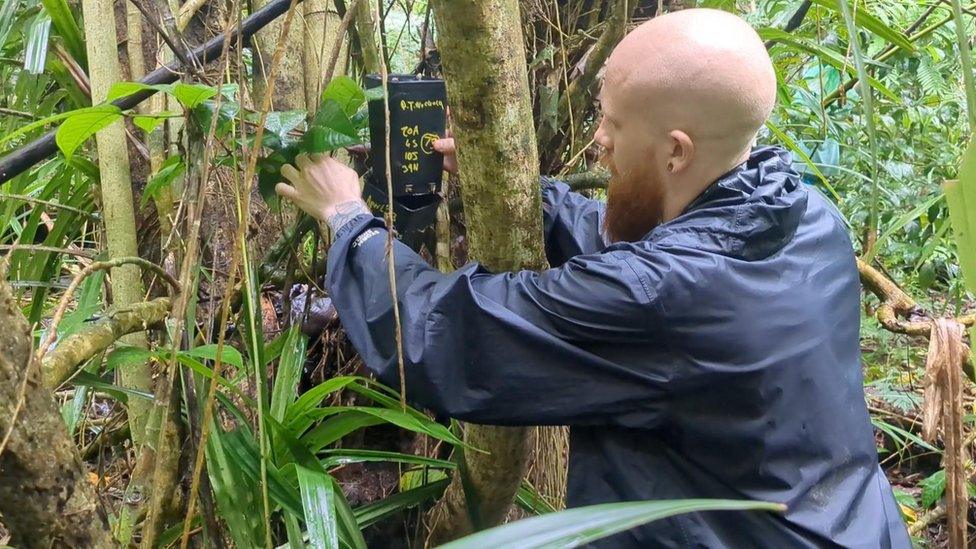
Tyrone Capel and his team trekked three hours into the forests of Moorea
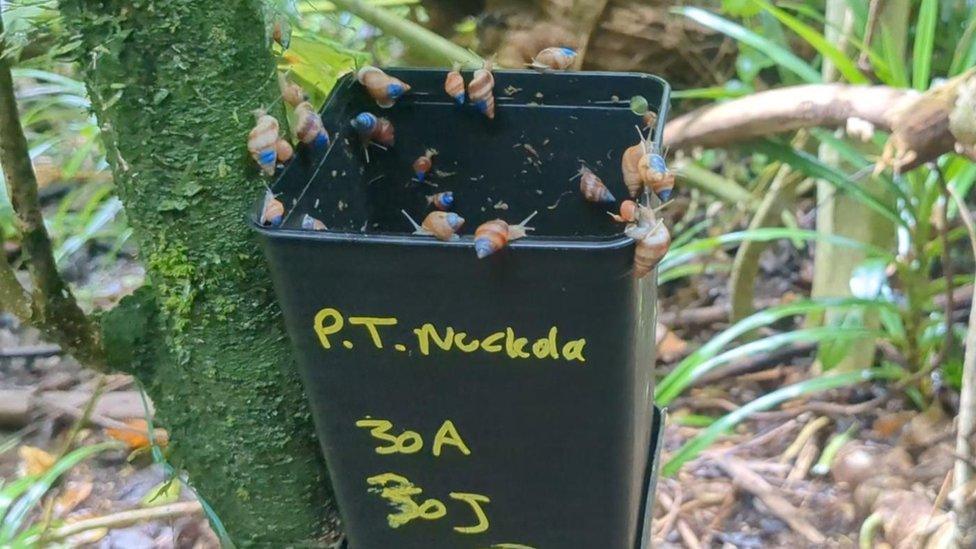
Mr Capel said the snails have also been a huge loss for Polynesian culture, as the shells were used in cultural artefacts
More than 24,000 Partula snails have been reintroduced by conservationists onto the French Polynesian islands.
Mr Capel and his team have released more then 1,600 Moorean snails into the forests of Moorea.
The remaining 550 snails will be introduced to the neighbouring islands of Huahine, and Tahiti.
Mr Capel said snail releases were "very slow" but added it was "incredible to watch them gradually propel themselves up into their natural tree habitat".
"All the hard work getting them there was worth it for that moment."

Follow East of England news on Facebook, external, Instagram, external and X, external. Got a story? Email eastofenglandnews@bbc.co.uk, external or WhatsApp us on 0800 169 1830
- Published24 March 2023

- Published21 August 2023
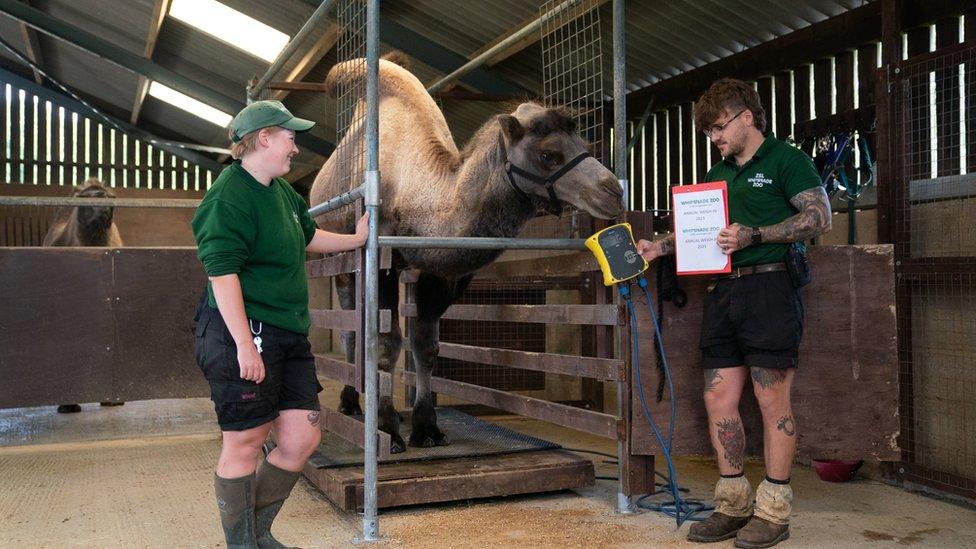
- Published5 September 2023
